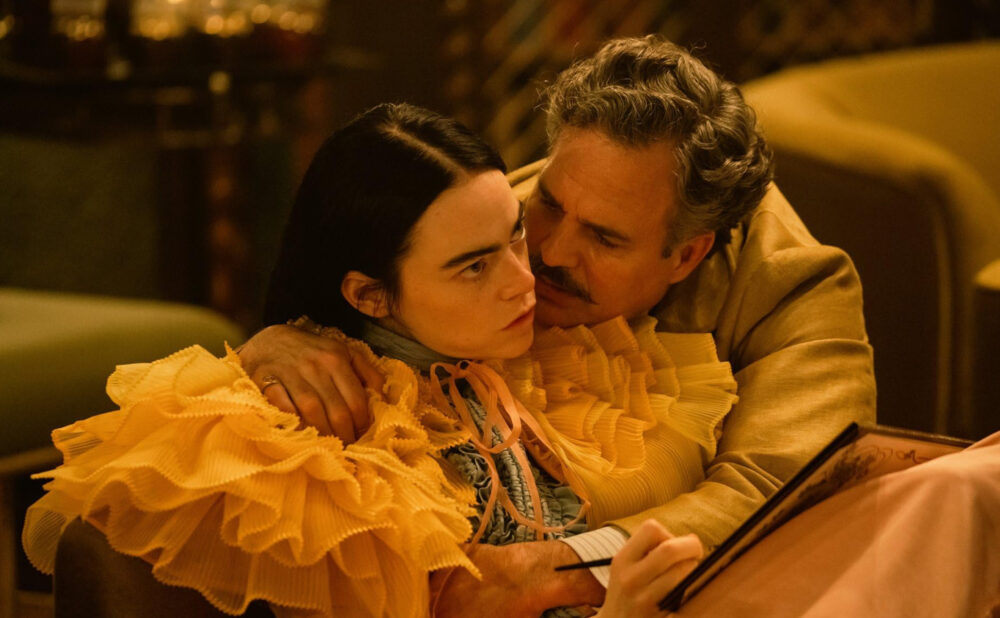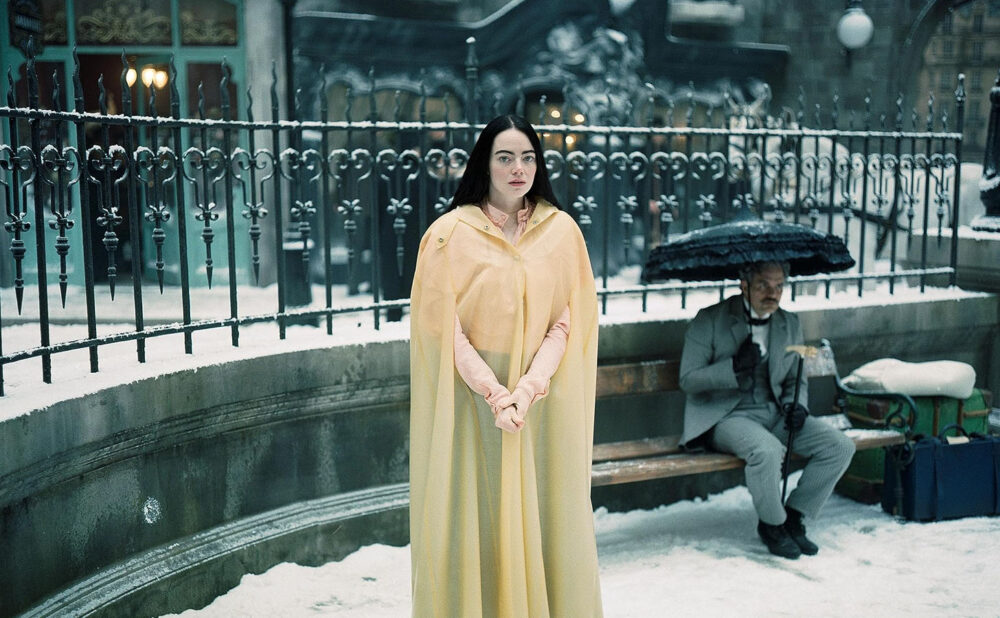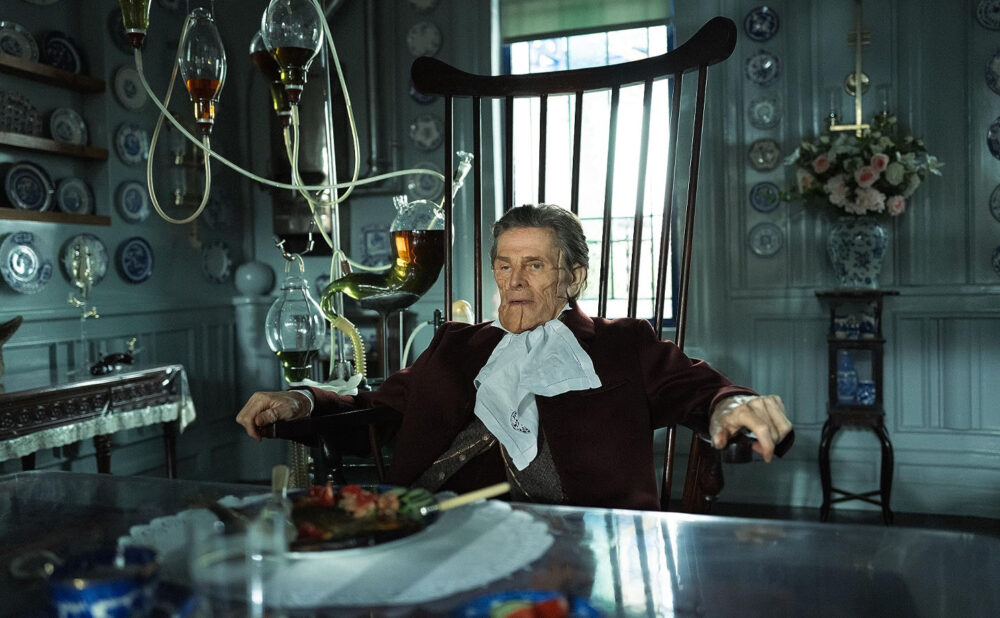Review: Stylish twist on Frankenstein fixates on weird
Emma Stone goes all in as “Poor Things” monster
Poor Things
Where: In theatres
What: Movie, 141 min.
When: Fri., Dec. 8
Genre: Drama
Rating: NNN (out of 5)
Why you should watch: Provocateur Yorgos Lanthimos’s latest film is a lush but ultimately simplistic reimagining of Mary Shelley’s Frankenstein.
MARY SHELLEY’S Frankenstein (1818) is the most well-known horror novel in the Western canon, and so has inspired countless adaptations and homages, including Poor Things. The latest from provocateur Yorgos Lanthimos (The Lobster, The Favourite) reimagines the classic gothic tale by asking the bold question: what if Frankenstein’s monster was a very attractive woman?
Loosely based on Alasdair Gray’s 1992 novel of the same name, Poor Things flips the Frankenstein story we know, so that we have a monstrous-looking doctor (here played by Willem Dafoe) and a beautiful creature (played by Emma Stone). Reputed for his experimental work in biology (and for his horrific face, the product of his father’s experimentations on him) Dr. Baxter keeps his creations, including a chicken-pug and a duck-goat hybrid, in a Dr. Moreau-esque house of wondrous horrors. His most cherished creation is Bella, an adult woman with the mind, and impulse control, of a child.
Emma Stone goes full tilt as the uninhibited, infantile Bella, and we feel both protective of and repulsed by her. Her lack of boundaries makes her vulnerable but also childishly cruel (she sees living creatures as her playthings), and when she resolves to leave the home to discover the world, we are worried about the havoc that she could wreak or could befall her. But once Bella leaves the doctor’s lair, her sense of self and the world around her develops rapidly as she moves from the pleasures of the flesh (pastries, sex, dancing) to those of the mind (philosophy, charity, medicine).
The first 45 minutes of Poor Things is an assault on the senses as we are introduced to the film’s cast of characters, including a bumbling and romantic assistant (Ramy Youssef) and a handsome, roguish lawyer Duncan Wedderburn (Mark Ruffalo), both of whom are taken with the beautiful Bella. Lanthimos takes great pleasure in the gut-churning quirkiness of Dr. Baxter’s laboratory (and I should say here that the film is not for the faint of heart) and the overly precious literary style of the dialogue; the opening act is almost like being hit with a colourful, Victorian battering ram. Although the talented cast members seem very game to take on Lanthimos’s playful, irreverent characters, they struggle to make the tone of the film — which lands somewhere between ick and whimsy — work.
The high point of the film is the lush production and costume design (the former by Shona Heath and James Price, the latter by Holly Waddington), which creates a truly fantastical world for Bella somewhere between steampunk and Dr. Seuss. It is refreshing to watch a film that has fun with its period setting, choosing to be inspired by and not beholden to the past. On Bella’s journey, the land and cityscapes are backed by beautiful digital skies, underscoring the film design’s fantastic artificiality.
But these delights can’t revive the film, which is so infatuated with its oddness that it forgets to have an original moral or philosophical idea. Poor Things is ostensibly about misogyny and men’s desire to control and punish women, with Bella as a role model for how things could be if women could pursue their desires unapologetically, without the fear of shame or repression. But since Bella hardly receives any real pushback for her lifestyle, this leaves the film with so little at stake.
Frankenstein is compelling not just because the monster is terrifying but because of the story’s moral conundrum: the creature lives in the world but could never be a part of it. Here we are asked to ponder how a beautiful, self-possessed and intelligent woman with no shame and a wealthy father might navigate the world, and the only conundrum is what, in her beautiful and strange life, can’t she do?










